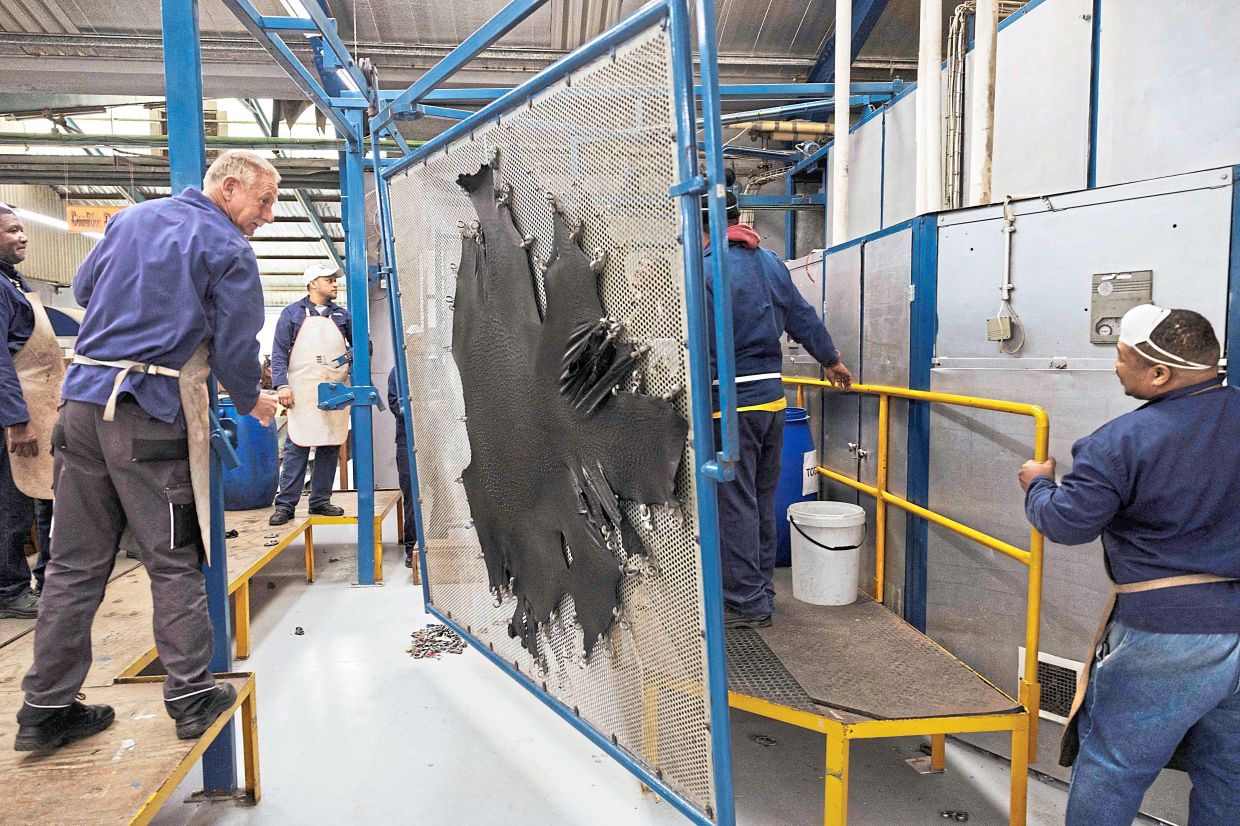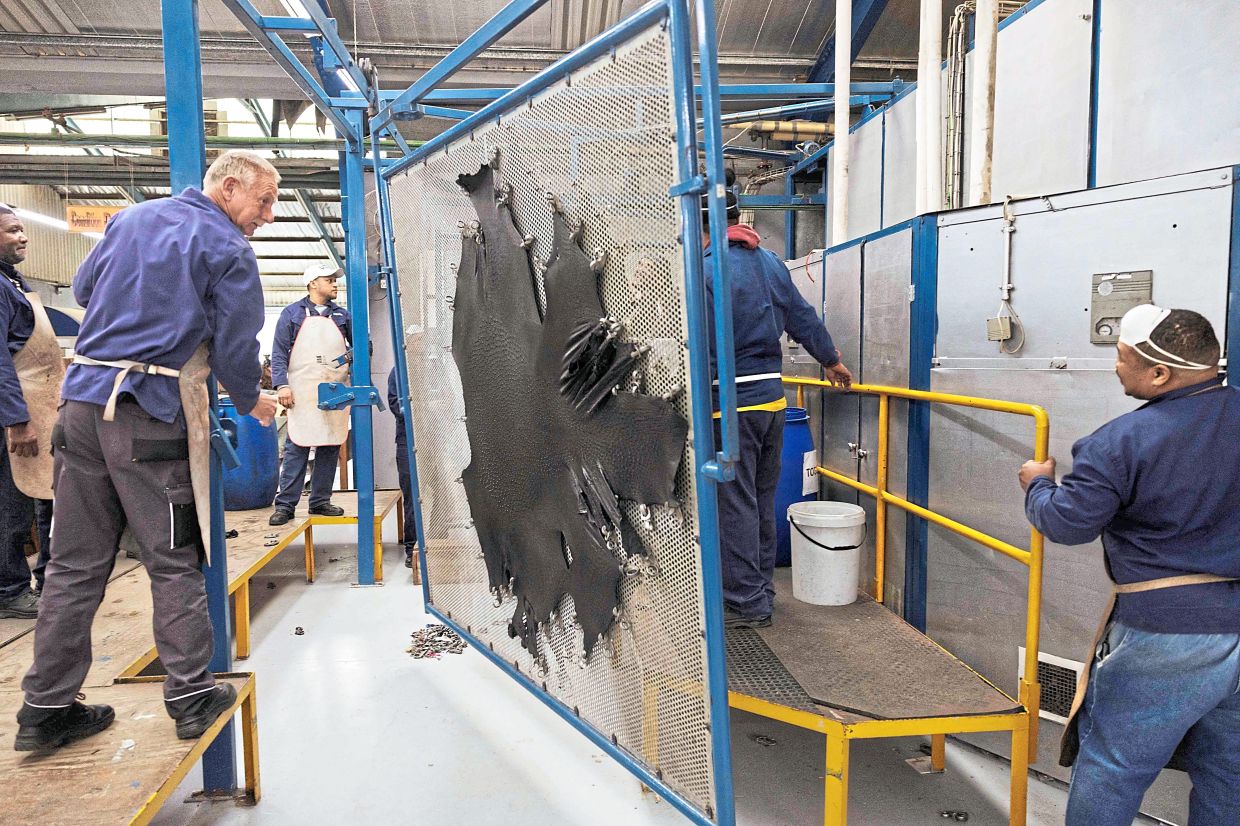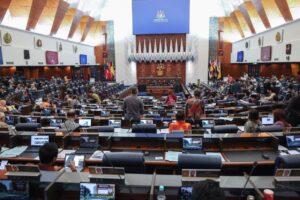
THE manufacturer of iconic “made in the USA” cowboy boots is set to suffer from President Donald Trump‘s 30% tariffs on South African exports, which came into force last month.
Texas’s most renowned makers of the southern US fashion staple source the ostrich leather they require exclusively from the small South African town of Oudtshoorn, 400km east of Cape Town.
Known as the world’s “ostrich capital”, Oudtshoorn is nestled in the semi-arid Little Karoo valley just inland from the southern coast,and is home to a few hundred thousand people and about as many of the giant flightless birds.
“We just don’t know how bad the impact will be, but positive it wouldn’t be,” said ostrich farmer Laubscher Coetzee of the tariffs that kicked in on Aug 1 after South Africa failed to negotiate a new trade deal with Trump.
More than half of the global supply of ostrich-derived products – from feathers to leather and meat – comes from nearly 200 farmers around Oudtshoorn who are joined in the Cape Karoo International (CKI) group, said its managing director Francois de Wet.
South Africa as a whole supplies about 70% of the world’s production, he said.
Luxury handbag manufacturers in France and Italy are among the CKI’s main clients. It also ships 20% of its ostrich leather to top Texas bootmakers such as Lucchese, Justin and Rios of Mercedes.
Ostrich is “the best skin to build boots”, according to Ryan Vaughan, CEO of the Rios of Mercedes manufacturer, which was set up in Texas in 1853.
“It moulds and forms to your foot. It is extremely durable. It has a lot of natural oils in it so you don’t have to care for it very much,” he said in a video posted in June. Another iconic brand, Justin, boasts its celebrated boots are “made in USA with global parts”.
And legendary bootmaker Lucchese said that it had handmade its footwear in Texas for 141 years but had to “look beyond our borders for additional partners and raw materials as needed”.
“At this time, we are still deciphering the impacts of the current tariffs on our products and production,” it said in a statement.
De Wet from the CKI said he believed the South African supply of ostrich leather to the US manufacturers did not run counter to a push by the Trump administration for production to be brought home.
The United States does not have enough ostriches to provide the required leather, he said.
“We export the raw material, the ostrich leather. They can’t produce it from local ostriches in the US. They don’t have them,” he said.
“They do all the value-adding in the United States,” he said. “So therefore, in terms of the pure definition of what the Trump administration would like to see, in this case, we do it already.”
The soft skins, recognisable by spots left by the large ostrich feathers, are currently sold to American manufacturers for around US$20 (RM84) a square foot.
“We exported more than the usual volume of ostrich leather to the US in the past two-three months, so we have a little bit of a buffer,” said de Wet.
“For the moment we don’t expect any layoffs in the short term,” he said. But “in the long term, if we have to pick up the full tariff, it will definitely… cause a shrinkage of our business.”
The consumer could also not be expected to pay an extra 30% for the already pricey boots, he said.
“So the tariff will have to be split between the exporter… and the importer, and preferably also a part paid by the end consumer.”
It is the unique climate of the Little Karoo, which gets less than 400mm of rain a year, that makes it ideal for ostrich rearing, said Coetzee, a fourth-generation Oudtshoorn farmer.
“That is the reason the ostrich industry is still here 200 years after (it started),” he said.
His great-grandfather built the family home in 1896, when the price of ostrich feathers rivalled that of gold because of their value to the women’s fashion industry.
The extravagant “ostrich palaces” of the time are a reminder of the industry’s previous major crisis, when the market collapsed in the early 1900s as the arrival of the low-roofed motor car ended the fashion for high-feathered hats. — AFP






